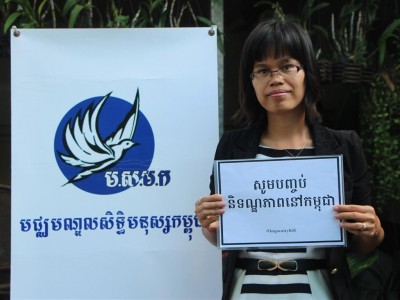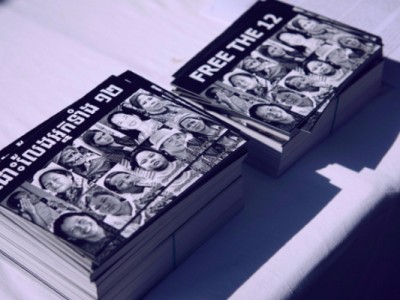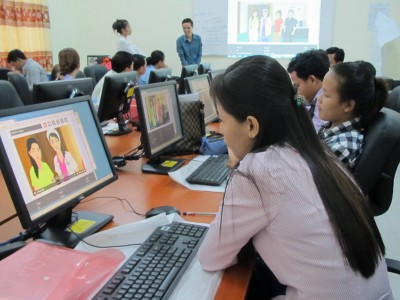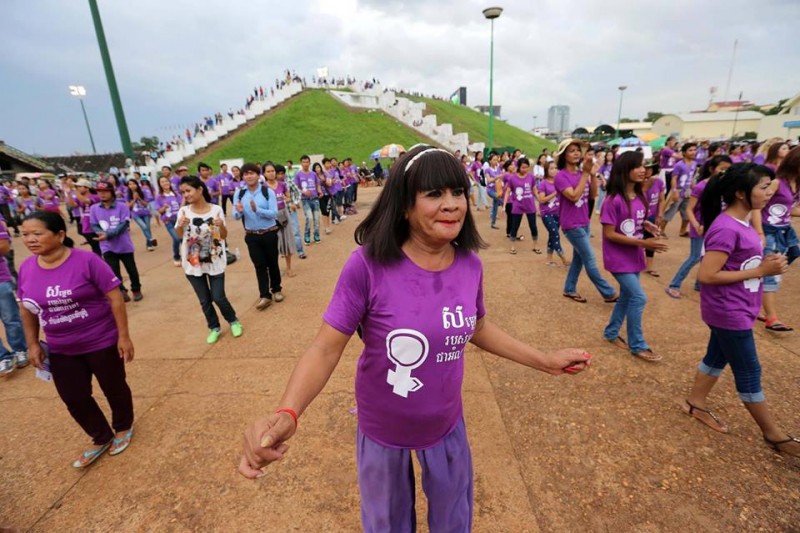
Photo courtesy – ActionAid Cambodia
Campaign Description:
We all have the same right to the city – to live, to work, to learn, to be mobile, to enjoy leisure time and to thrive, without fear, without violence. Unfortunately, that is not the experience of women. Women in cities everywhere are often held back because they cannot move freely without fear and the threat of sexual violence. If women report sexual abuse, they are blamed for being in the wrong place at the wrong time, and for what they are wearing. Women are told to restrict their own movement and behavior in order to remain safe. It is worse, reporting sexual abuse brings women shame. On the contrary, offenders continue to go unpunished and free from all sorts of judgments.
The cities belong to everyone yet their planning and services are not designed with women in mind. Poor urban women, from slum dwellers to sex workers to informal vendors to formal workers and young migrant students, are most at risk because they don’t have the means to find safe living conditions, bring their attackers to justice, or simply access refuges and hospitals safely.
All these must change.
Campaign Objectives:
The campaign “Safe Cities for Women” is about women reclaiming their right to the city. We are calling the governments, businesses, media, leaders and individuals to act now to:
- End normalization of sexual violence against women
- Change deeply embedded sexist attitudes
- End impunity of sex attackers
- Provide safe and gender-responsive public services and urban design
We will fight until women feel safe and free from fear and all sorts of violence. We believe that “When a city is safe for women, it is safe for everyone”.
Campaign target audience:
Sub-national level: Municipality of Phnom Penh, Sangkat Council, Women and Children Committee at District level, police
National level: Ministry of Women’s Affair (Technical Working Group on Gender and Sub-working on GBV), Ministry of Interior, Ministry of Land, Urbanization and Construction (Gender working group), Ministry of Labour, Ministry of Planning (National Institute of Statistics through UNFPA), Ministry of Economy and Finance, Ministry of Social Affair and Veterans, Ministry of Tourism
- Media
- Public: Men/boys, community living in the area of residence of women workers
- Union: Garment sector and beer promoter
- Private sector: factory owner, landlord and bar/restaurant owner, brand-owner
- Other social groups of the vulnerable e.g. Disabled/LGBT/Displaced/Homeless will be further researched for inclusion
- Fine Arts-Architect/urban design
Tools used during the campaign:
- Awareness raising and attitude and behaviour change materials
- Direct dialogue between women and decision makers
- Studies, grassroots voice, consultation workshop to identify key demands with supporting references
Campaign Activities (Online)
- Awareness raising and attitude and behaviour change communication through Facebook, Twitter and Instagram, and website
- Call for action
- Urgent action
Campaign Activities (Offline)
Supporters mobilisation: We organised madison dance for campaign launch and International Women's Day. At each event we collected phone numbers and email addresses to create a list of supporters which we will communicate with them later for call for action. At each event, we managed to mobilise about 1000 people to join, which included garment workers, beer promoters, sex workers and students who are our constituencies and a wide range of public.
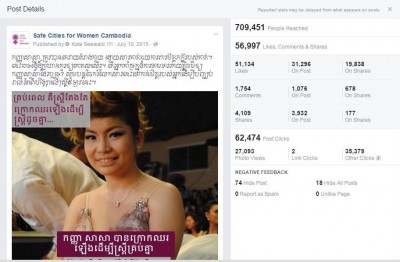 Call for action: We haven't had any big call for action yet as we are in the process of building a base of supporters, as well as for women empowerment. We only had one small urgent action on Facebook page, which we call for justice for Ek Socheata, better known as “Sasa”, a Cambodian film star who was attacked by a tycoon. This meme on the Sasa case reached almost a million people and has created great debate in public. With this one post, we received more than 50,000 likes, more than 4,000 shares, and almost 2,000 comments.
Call for action: We haven't had any big call for action yet as we are in the process of building a base of supporters, as well as for women empowerment. We only had one small urgent action on Facebook page, which we call for justice for Ek Socheata, better known as “Sasa”, a Cambodian film star who was attacked by a tycoon. This meme on the Sasa case reached almost a million people and has created great debate in public. With this one post, we received more than 50,000 likes, more than 4,000 shares, and almost 2,000 comments.
Dialogue, consultation, and planning: We conducted study to understand women safety issues, their experience of violence, and their experience of engagement with local authority. We informed local authority about the findings and local authority made commitment to widen the space for women to participate and raise their concerns in the local planning process in the future.
Campaign Outcomes
- We have established a supporter list (of 700 people in mailchimp) and more than 1000 people on phone sms, which continues to extend further
- We have built networks and partnerships with like-minded NGOs and social movements.
What were the main failures, if any, of this campaign?
A sense of shared ownership among partners over the campaign which needs improvement from this year onward.
Collaboration with a wider range of like-minded networks is also necessary to push forward policy advocacy agenda. This is something that we will focus on building from this year as well.
Organisations involved:
ActionAid Cambodia, United Sisterhood (comprises Women Network for Unity, Mesenger Band, Workers Information Centre, Social Action for Change), Cambodia Food and Service Workers Federation, Cambodian Centre for Independent Media, ,any other like minded organisations working on promoting women's rights.
*This documentation would not be possible without the support from ActionAid Cambodia's SafeCities Campaign team members, especially Ms. Sopheary Ou, Communication & Campaign Coordinator, who are willing to offer an in-dept insight to the campaign experience. Information and photo are supplied by AcitionAid Cambodia.

